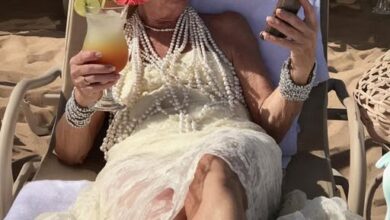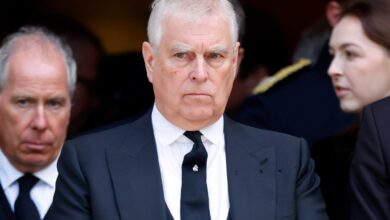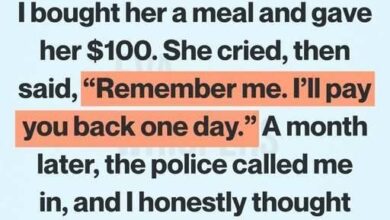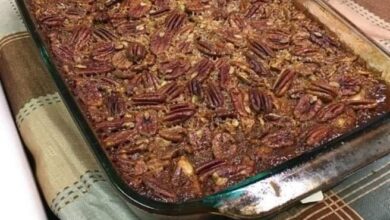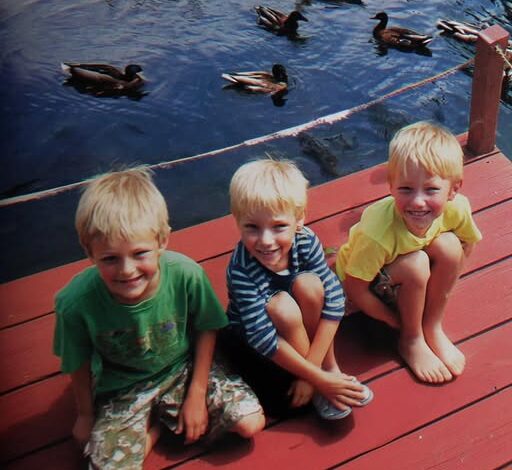
I Left $4,3M to Triplets I Have Never Seen, None of My Children Will Inherit a Dime
At 87 years old, I decided to do something my children never saw coming: I left my $4.3 million fortune to three boys I’ve never met. Not one cent will go to my son or daughter. They thought they were entitled to everything I worked for, but they were about to learn why I chose differently—and who these triplets really are.
My name is Carlyle, and I built my wealth the hard way. I spent six decades growing a modest manufacturing business into a successful empire. My wife, Marcy, was there through every setback, every risk, and every sleepless night when it all could’ve collapsed. Without her, none of it would’ve been possible.
We raised two children, Caroline and Ralph. From the start, they lived in comfort—designer clothes, private schools, dream vacations. Caroline grew up to marry a corporate lawyer and lived in luxury. Ralph became a hedge fund manager with a garage full of sports cars. They had privilege from the day they were born, and maybe that was my mistake: giving them so much that they forgot the value of love and loyalty.
Six months ago, I collapsed in my study. My housekeeper found me and called an ambulance. It was a minor stroke—scary, but manageable. I spent two weeks in the hospital, surrounded by machines and strangers. Caroline called me once. She said, “Dad, I’m swamped at work, but I’ll visit soon.” She never came. Ralph didn’t bother calling. He sent flowers with a generic card: Get well soon, Dad.
When Marcy fell ill a few months later, the truth about my children became painfully clear. She had been feeling weak and fainted in the garden one afternoon. Tests confirmed the worst: stage-four cancer. The doctors said she had only months left.
I called Caroline immediately. “Your mother is dying. She needs you.”
“Oh, Dad, that’s terrible,” she said, distracted, like she was reading emails. “I’ll try to come this weekend. I’ve got a huge presentation…” She never showed.
When I called Ralph, he answered in the middle of a business meeting. “That’s rough, Dad. I’ll call you back.” He never did.
Marcy died on a crisp October morning with the sun streaming through the bedroom window. I held her hand as she slipped away, and I knew I was losing the best part of me. I expected my children to come, to mourn, to at least say goodbye. Instead, two days later, my lawyer called.
“Carlyle,” he said hesitantly, “I need to tell you something. Your children have been calling my office. They’re asking… if you’re still alive.”
I thought I’d misheard. “What?”
“They weren’t asking out of concern,” he explained quietly. “They wanted to know when they could expect your estate to be settled. Ralph even asked for a copy of your will.”
I hung up the phone and sat in my empty home, surrounded by photos of children who no longer saw me as their father—just as a wallet waiting to close. That was the moment I decided: neither Caroline nor Ralph would inherit a dime
I called my lawyer back and said, “Draw up the papers. They get nothing.”
The lawyer hesitated. “And who do you want to leave it to?”
“To three boys,” I said. “Triplets. They’re seven years old and in foster care. Their names are Kyran, Kevin, and Kyle. They don’t know me, but I owe them everything.”
He was baffled, but I explained: during the war, I served with a man named Samuel. In the middle of a firefight, a grenade landed in our foxhole. Samuel threw himself on it without hesitation. He was 27 years old. He saved my life—and three others—by sacrificing his own.
Those boys are his great-grandchildren. Their parents died in a hurricane, and they have no family left. When I learned about them through a veterans’ network, I knew what I had to do. Samuel gave his life so I could live mine. I married, built a business, and became a father because of him. Now, I’ll give his descendants the future he never had.
Caroline found out first, through gossip, and exploded over the phone. “You can’t do this! We’re your children! They’re strangers!”
“You’re my blood,” I told her, “but you stopped being my family when your mother needed you and you couldn’t be bothered to show up.”
Ralph stormed into my house demanding answers. “So this is about guilt? Some war story?”
“It’s about gratitude,” I said. “You called my lawyer to ask if I was dead. These boys need a home. You already had one and threw it away.”
Weeks later, when the boys finally walked into my house, clutching worn backpacks and looking both scared and hopeful, my heart swelled. Kyran asked shyly, “Is this really our home?” Kevin whispered, “Why do you even want us?” And Kyle, clutching a blanket, slipped his tiny hand into mine without a word.
In that moment, I knew I’d made the right decision.
Caroline and Ralph walked in as the boys explored their new rooms, and for once, they were speechless. They realized too late what family truly meant—not money, not inheritance, but showing up when it matters.
Today, my house is full of laughter again. The triplets run through the halls, eat dinner at my table, and fill my evenings with stories about school. Caroline visits sometimes, trying to make amends. Ralph even brought his wife and spent time building blocks with the boys. Maybe they’ll learn what family really is through these children.
As for me, I finally feel at peace. My fortune will not rot in the hands of greedy heirs. It will give Samuel’s descendants the life he deserved but never had. That is my legacy—not the money, but the love, protection, and gratitude passed forward.
And when my time comes, I’ll go knowing I kept my promise to a friend who gave everything so I could have a lifetime.
